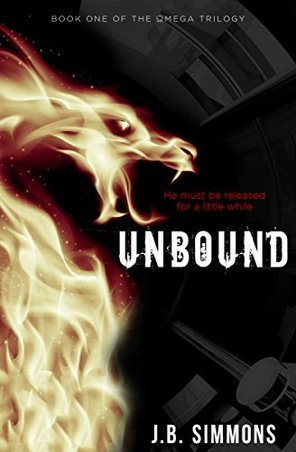 Interview by Brock Eastman Featuring Unbound He must be released for a little while. But the one who sees doesn’t believe. Elijah Goldsmith has nightmares he needs to ignore. Why would a rich kid from Manhattan dream three straight nights about a dragon and the destruction of St. Peter’s Basilica? He’s never even been to Rome. It’s bad timing, too. He’s graduating soon and applying to be a spy in the International Security Agency. That’s where he meets Naomi. She’s the kind of girl who makes boys like Elijah want to share their secrets. Were they brought together to learn what his secrets mean? There’s more to their sparks than they think. This is 2066, the year the world ends. "This is going to be huge. . . . The Da Vinci Code meets The Hunger Games meets Left Behind. . . . An imagining epic." -- Hugh Hewitt, author and national radio show host Brock: What’s it like to be an Amazon sensation? J.B. Simmons book Unbound has become a #1 best seller in multiple categories over the past several weeks, his story and his publishing model has taken him to the top. What makes this story so popular with readers? I sat down with J.B. Simmons to get the latest on the first book in The Omega Trilogy. Brock: How did you come up with the idea for The Omega Trilogy? J.B.: Unbound started with little questions about a huge idea. The book of Revelation says that, after one thousand years bound in chains, “the dragon, that ancient serpent ... must be released for a little while.” That’s hard to understand. Why would anyone unleash the bad guy? What would the bad guy do, and how long is a little while? Writing about these questions, and the characters that faced them, spun the story into the Omega Trilogy. Brock: Wow, the timing of this interview couldn’t be better. This past Saturday we were discussing the thousand years in the college small group we lead at our home. J.B. take a minute to tell us about the main characters. J.B.: Elijah Goldsmith has everything going for him. He’s the 18-year-old son of a New York banker. He’s smart, rich, and destined for success. But he starts having disturbing dreams. Soon events spiral out of his control. His fate is beyond anything he dreamed. Naomi Parish is a Christian from North Carolina, raised by a former NBA star who became a missionary. She’s home-schooled, and a genius at coding. Like Elijah, she is enlisting in an international spy agency. She’s also stunning—the kind of girl who makes boys want to share their secrets. Both Elijah and Naomi are unique because their background and skills, particularly when they’re together, put them in central roles as the world crumbles around them. They are chosen. A mystery confronted in the book is who, exactly, is doing the choosing. Brock: Give us one fact about each main character that no one else knows. J.B.: Elijah is Jewish, but he barely even believes in God. Naomi seems meek and perfect on the surface, but underneath she’s fiery, intense. Also, her favorite flavor of ice cream is Butter Pecan. Brock: Always fun to get these little insights the author knows, but didn’t share in the book. In three words what is this book about? J.B.: Revelation. Technology. Destiny. Brock: Do you outline the entire book before starting, or do you write as you go and let the characters take control of the story? J.B.: I start with a basic idea and let the characters take control from there. But I do have a vision for the endpoint. The exciting part is seeing how the characters react to what happens around them. Brock: My kind of author, my style’s the same. How do you believe this story relates to the lives of readers? J.B.: It’s about finding your way in challenging times. It’s also loaded with ideas about where technology is heading in the future. Also, thanks to the year 2000 (remember Y2K?) and the Left Behind series, many are familiar with ideas about the millennium. Gut reactions abound for this end-times stuff. But, as many readers have said about Unbound, I can assure you that its ideas are fresh and new and will make you think differently about it all. Brock: What is your favorite genre to write for? J.B.: I’m still figuring that out. One thing is clear: I like to write books that tackle the hardest questions, and that move really fast. In our modern era of distractions, I hope my stories will grab readers’ attentions and not let go. Brock: That is the challenge these days, especially for the younger market. Any certain research required for the book, or is it all from your imagination? J.B.: I did tons of research. First, I studied Revelation, Daniel, and other prophecies extensively. This book was my favorite resource, because it compares the different end-times views objectively. I also read dozens of articles and books on the future. The trilogy takes place in 2066, when no one knows what the world will look like. One example is the “precept.” It’s a concept in the book about computing technology embedded in our normal brain functioning. Sound crazy? Well, two prominent MIT professors recently wrote a book, The Second Machine Age, that makes it seem pretty realistic, and maybe sooner than we think. Check out my blog for more info on the sources I used. Brock: Wow that’s at the same time frightening and really interesting. Can you give us a hint at the next books in the series? J.B.: Book 2 is called Clothed with the Sun. Book 3 is Great White Throne. The best hints you’ll find are in Revelation 12:1 and 20:11. Because those verses are so clear… Brock: Always great to point back to the Word. How do you hope parents will use this book with their kids? J.B.: This is a story that matters, because it seeks truth. I’ve heard from some parents who have been using it brilliantly – reading it out loud to their families as part of home-schooling. I think any parent who wants their kids to think about the future and faith will find this book to be a perfect fit. Brock: What do you hope teens and young adults take away from The Omega Trilogy? J.B.: That our world is heading fascinating places, with plenty of trouble on the horizon, but that there’s a higher power who’s in control. We can have hope no matter what comes. Brock: Hope is a great thing to have. How long does it usually take you to write a single book? J.B.: I try to finish a complete draft within 2-3 months. That keeps all the ideas in my head at once. But then I set the book aside for at least a month. It goes through many rounds of editing after that. The whole process takes around one year. Brock: What do you think is the key for finishing a draft so fast? J.B.: The habit of writing every day is huge. It took me a while to figure this out, but writing is so much better when it’s regular. Two books helped me understand this: On Writing by Stephen King and The War of Art by Steven Pressfield. For anyone interest in writing, they’re must-reads. Brock: When did you realize you wanted to become a writer? J.B.: I went to law school with a goal of sharpening my writing skills. Then, about seven years ago, late one night, I was toiling over a legal brief and asking myself hard questions: “Who am I, why am I here, what am I doing?” An answer flashed in my mind like a bolt of lightning: “You are a writer.” Ever since, I’ve felt peace when filling a page with words. Brock: Do you have a particular drink or food you consume when you write? Like coco, raspberry tea, animal crackers? J.B.: Coffee. I drink it black, preferably a light and recent roast. I have 3 kids under 5 years old, which is not always conducive to a full night’s sleep. One of my secrets is the coffee nap. Brock: J.B. I know the feeling I’ll have 4 under 5 in just a few days from now. Favorite color? J.B.: Midnight blue. Brock: Do you listen to music while you write? If so, what are some examples? J.B.: Always. It’s usually beautiful, intense, and instrumental. Some of my favorites are Yann Tiersen, Sigur Ros, Mum, and Explosions in the Sky. Yann Tiersen is a French composer. His music is magical and genius. If you’re interested, his work on the soundtrack of Amelie is a good place to start. Brock: J.B. Thanks for answering these questions. Readers you won’t want to miss out on this exciting trilogy. Book 2, Clothed with the Sun is also available now. 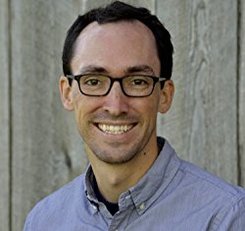 Author Website: www.jbsimmons.com Author Facebook: https://www.facebook.com/JBSimmonsAuthor Author Twitter: https://twitter.com/jbsimmonslight
0 Comments
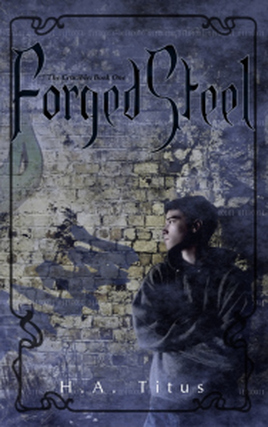 Interview by Brock Eastman Featuring Forged Steel Downtown. Coffee shop. 2 AM. One minute, Josh is firing off sarcastic remarks at his best friend Marc – the next, they’re running from shape-shifters. Apparently, even best friends don’t share all their secrets. Now Josh is in danger. He can see the monsters among the humans. When Marc is kidnapped, Josh finds himself pulled into the schemes of the fae courts, and throws in his lot with Marc’s allies: the lovely Larae, a human named David, and the fighter, Eliaster. But what began as a rescue mission becomes something much more involved… And all Josh wants to do is get out before it’s too late. Brock: How did you come up with the idea for this book or series? H.A.Titus: I came up with the idea after being introduced to urban fantasy via Neil Gaiman's novel Neverwhere and Kersten Hamilton's series The Goblin Wars. Both of them inspired me to try my hand at urban fantasy, which was a completely new genre for me, and I also decided to throw in a Celtic twist, as Celtic mythology has always been something that fascinated me. Brock: Tell us about the main characters. Who are they? What makes them unique? H.A.Titus: There are several main characters, so I'll just stick with the two who are the most important. The book is written in the first-person point of view of Josh, a computer and math genius who is also a fantasy and sci-fi geek. He's pretty unique because you don't see many geek protagonists getting out there and getting their hands dirty—they tend to stay in the bunkers giving the other protagonists technical back-up. Eliaster is my warrior character—he's full-blooded fae, which makes him temperamental and dangerous for humans to be around, but he's also committed himself to protecting humans from other fae who are worse than he is. He's my favorite character to write in this series, not just because of his sarcasm, but because he has a really cool story line that I can't wait for readers to see. Brock: Give us one fact about each main character that no one else knows. H.A.Titus: Umm, ok… Josh absolutely hates energy drinks. He can down coffee like no one else, though. Even though Eliaster grew up in the fae-run Underworld, he isn't comfortable there and rarely sleeps more than two hours while he's in the Underworld. Brock: In three words, what is this book about? H.A.Titus: Adventure, mythology, and building trust. Brock: Do you outline the entire book before starting, or do you write as you go and let the characters take control of the story? H.A.Titus: I loosely outline, so I have an idea of where I'm going, but I allow enough flexibility to let the characters take over at times. (And hope they won't change my ideas for the story too terribly much.) ;) Brock: How do you believe this story relates to the lives of readers? H.A.Titus: Anyone who has a hard time trusting others is definitely going to relate, especially to Eliaster. Brock: What is your favorite genre to write for? H.A.Titus: Well, I love urban fantasy and steampunk—each has its own tropes that make it fun—but I think my absolute favorite would have to be middle-grade whimsical fantasy, along the lines of the first few Harry Potter books, or Alcatraz VS the Evil Librarians, or Howl's Moving Castle. I just started trying it out earlier this year, and it's a fun change of pace from my darker YA and NA books. Brock: How many books are planned for this series? H.A.Titus: Five to seven, though that number keeps changing as the story is still in flux. Brock: Any certain research required for the book, or is it all from your imagination? H.A.Titus: I did a lot of research of Celtic mythology and the Irish Gaelic language, all of which was fun for me. I can finally speak a bit of Irish Gaelic, which has been a bucket list item since high school! Although I probably mangle some of the pronunciation, since it's easily one of the most confusing languages I've seen. Brock: How does it feel to have your work published? H.A.Titus: Really, really awesome. This has been something I've wanted to do since I was twelve, so being able to finally hold a book that is 100% from my head in my hands is easily as cool as the first time holding my sons. Brock: Why did you choose to focus on a male protagonist? H.A.Titus: I didn't really choose…Josh kind of walked into my head and said "Hey, I've got this cool story you need to write down." Brock: Are you working on the next book in the series? H.A.Titus: Yes! Still finagling some plot details, since it introduces some new characters and a new point of view, but it's coming along. Brock: Can you give us a hint at the next book in the series? H.A.Titus: More Unseelie plots, more danger for Josh and Eliaster to get themselves into, and more sarcastic characters for the guys to snark at. If I tell you any more, it would step into spoiler territory. Brock: Do you plot or outline the entire series before you begin writing, or do your books take on lives of their own? Or is there a combination? H.A.Titus: This is the first series I've written, and it definitely took on a life of its own. It was originally intended to be a novella…then it expanded into a full length novel…then a trilogy…now it's a series. I'm kind of hoping that this doesn't turn into a trend for the rest of my stand-alone books, otherwise I'm never going to finish everything! ;) Brock: If your book changed as you wrote it, how is it different than how you originally planned? H.A.Titus: As I mentioned above, it was originally supposed to be a novella. It was also supposed to be satirical. Turns out I'm not very good at satire, and I adored the characters too much (ok, Eliaster…I adored Eliaster too much) to let it just be a novella. Brock: Were any scenes or characters cut from the book? Can you give an example? H.A.Titus: Not really, but there were a couple of characters whose parts were cut from having a big role to having merely a cameo. (For those who have read the book, these characters are Gren and Coriander from the Chicago Underworld.) Brock: Is it difficult to be accurate to a biblical perspective or biblical facts when writing fantasy fiction? H.A.Titus: I don't think so, although I can't speak for the biblical facts part as I've never tried writing Biblical fantasy. Any author who is a Christian, even if they're not trying to write specifically Christian fantasy, is going to show some Biblical perspective in their writing, even if it's something as simple as a "good versus evil" plot, or as subtle as Tolkien's Iluvatar. I think speculative fiction is something that is uniquely suited to the Christian perspective, as so many fantasy and sci-fi stories are, at their core, stories about heroes…and what is Christ's sacrifice but the ultimate hero story? Brock: Where do you like to write? H.A.Titus: I prefer writing in my office, where I can shut the door, plug in my headphones and turn on loud music, and concentrate, but more often (like as I'm answering these questions), I'm writing on my laptop at the kitchen table to the soundtrack of my newborn's snores and my toddler's car noises, alphabet songs, and random yells. Brock: Are you a full-time or part-time author/writer? H.A.Titus: Part time, for the forseeable future. Brock: How long does it usually take you to write a single book? H.A.Titus: It depends…usually about a year from start to finish, although it can take longer if I have to take a break from writing for a while. Brock: Expound on the spiritual themes in the book/series. H.A.Titus: I didn't really try to build any specific spiritual themes into Forged Steel, but one I've noticed that keeps cropping up, especially in a certain character's story arc, is clinging to God as a lifeline through everything. Brock: What is your "how I got published" story? H.A.Titus: Around May of last year, I realized that I would shortly be turning 26, and I still hadn't published a book, even though I'd said every year for the past five, "THIS year will be the year I publish a book". I realized I needed to stop procrastinating, stop being fearful, and just get my book out there. So I gave myself a deadline (my birthday, which was in July), and dove into editing my book for the last time. It was a mad scramble to get everything done in two months, so next time I'll definitely give myself more time, but in the end it was worth it. Brock: When did you realize you wanted to become a writer? H.A.Titus: When I was twelve, when I realized that my penchant for writing stories might be a God-given talent, and that I should probably cultivate it. Brock: What are some of the strongest influences on your writing? H.A.Titus: J. R. R. Tolkien got me started on fantasy—before then I tried writing mysteries and historical fiction, but it never really seemed to fit my personality. Fantasy was where I felt the most comfortable. Nowadays, Jim Butcher and Neil Gaiman have been strong influences on my urban fantasy, but for overall writing, I'm most inspired by anything Brandon Sanderson writes. Brock: What’s your view on e-books and the new publishing revolution? H.A.Titus: It's totally awesome! I loved having the ability to control my cover, my interior layout, and pretty much every other aspect of my book. It's forced me to learn new skills (though I was close to pulling my hair out a time or two), reach out to the community of writers I know online, and I also like being able to run giveaways and control the pricing of my book. It gives me a lot of flexibility and room to experiment. Brock: What was your favorite book as a teen or child? H.A.Titus: The Lord of the Rings and The Hobbit, for sure. Brock: What is the one author, living or dead, who you would co-write a book with and why? H.A.Titus: Brandon Sanderson or J. R. R. Tolkien, although I know I wouldn't be able to come even close to their geniuses. Brock: Describe your feelings when you opened the box and saw the first published copies of your very first book. H.A.Titus: I just stared in a sort of shock. It was hard to translate the fact that these ideas, which had existed only in my head for so long, had finally been given a physical form. Brock: What are your hopes for your future as an author? H.A.Titus: Well, as I'm sure any author would, I'd love to get a bestseller, or maybe even have my books made into movies or TV shows! My more realistic goal though is to be able to supplement my husband's income, or maybe eventually make enough to give us the financial flexibility for him to start his own business, which is something I know he'd enjoy. Brock: Coke or Pepsi? H.A.Titus: Neither…most dark sodas make my stomach upset, so I prefer ginger ale or lime-flavored seltzer water. Brock: Soft shell or hard shell tacos? H.A.Titus: Soft shell. I don't like the mess of hard shells. Brock: Favorite place to vacation? H.A.Titus: Copper Harbor, Michigan. It's a quiet, remote campground at the northernmost part of the Upper Peninsula. There's a tiny little town a five minute bike ride away, and it's right next to a Civil War fort. I love how peaceful it is there. It feels like my personal Rivendell, as Bilbo describes in The Hobbit: "Elrond's house was perfect, whether you liked food or sleep or story-telling or singing or reading, or just sitting and thinking best, or a pleasant mixture of them all. Merely to be there was a cure for weariness..." Brock: Favorite season? H.A.Titus: Summer! Summers up here never get super hot, except for a couple of weeks in July or August. Most of the time it's the perfect weather to go mountain biking or rock climbing. Brock: Do you have a particular drink or food you consume when you write? Like coco, raspberry tea, animal crackers? H.A.Titus: Ginger chews, dark chocolate covered pretzels or almonds, and tea—lots of tea, hot or iced depending on the season. Brock: Favorite color? H.A.Titus: Green or black, depending on my mood. Brock: What’s your favorite holiday memory? H.A.Titus: I don't have a specific memory, but I love Christmas. Despite winter being my least favorite season, Christmas is a time that I always get excited about—I think there's something about the season that is magical and joyful no matter how old you are. Brock: Do you have a favorite Bible verse? H.A.Titus: Probably Psalm 45:1, "My heart is stirred by a noble theme as I recite my verses for the king; my tongue is the pen of a skillful writer." I've just always thought it appropriate for a writer. ☺ Brock: Favorite pasta dish? H.A.Titus: That would have to be spinach artichoke pasta with chicken. Brock: Do you listen to music while you write? If so, what are some examples? H.A.Titus: I don't often get the chance any more (remember the whole writing at the kitchen table thing?), but I do enjoy listening to music while writing. A lot of times it helps my writing go better. What I listen to depends on what I'm writing—I build Spotify playlists tailored to each work in progress as I'm outlining, but it generally includes a lot of cinematic-type music from Future World Music, Audiomachine, etc. If I'm just writing blog posts or doing business stuff, I turn on Owl City or Andrew Peterson or Imagine Dragons—something bouncy and peppy to keep me moving. Brock: What are your hobbies besides writing? H.A.Titus: In the summer, I love to rock-climb and mountain-bike. The city we live close to also has a lot of nice paved biking paths, so we try to get out two or three times a week for a ride. In the winter, my favorite pastime is skiing, but I also end up going on a snowmobile trip once or twice a season too. 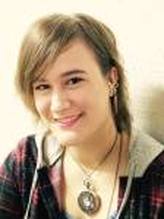 Author Website: www.hatitus.com Author Facebook: facebook.com/hatitusauthor Author Twitter: twitter.com/HATitusWriting Author Pinterest: pinterest.com/HATitusWriting Author Instagram: instagram.com/HATitusWriting 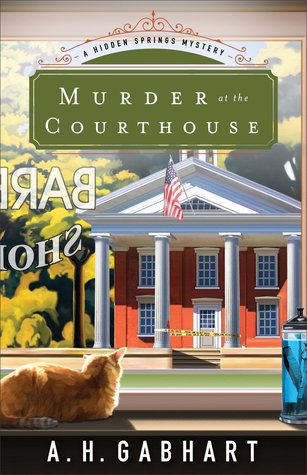 Interview by Brock Eastman Featuring Murder at the Courthouse Michael Keane’s stressful days as a Columbus police officer are done. He’s ready to relax into his new position as deputy sheriff in his sleepy hometown. Nothing ever happens in Hidden Springs, Kentucky—and that’s just fine with Michael. Nothing, that is, until a dead body is discovered on the courthouse steps. As Michael works to solve the case, it seems that every nosy resident in town has a theory. When the sheriff insists Michael check out one of these harebrained theories, his surprising discovery sends him on a bewildering search for a mysterious killer that has him questioning everything he has ever believed about life in Hidden Springs. Bringing with her a knack for creating settings you want to visit and an uncanny ability to bring characters to life, A. H. Gabhart pens a whodunit that will keep you guessing. Brock: How did you come up with the idea for this series? Ann: I’ve always enjoyed reading mysteries. So I decided why not try to write one or two. I picked a small town because that’s what I know. Hidden Springs came into being. Then a character, Michael Keane, who loves his little town and wants to protect it, sprang to life in my imagination. At this point, I thought what if things weren’t as idyllic as they seemed in Hidden Spring. What if secrets from the past were buried under that peaceful surface that would threaten to tear the town apart? Brock: Tell us about the main characters. Who are they? What makes them unique? Ann: My main character, Michael Keane, is a deputy sheriff in my little town. He was a policeman for a while in a big city, but didn’t like all the crime he saw there. His roots go deep in Hidden Springs and he’s happy back in his hometown directing traffic and writing up fender bender accident reports. But then a body is discovered on the courthouse steps and the town is plunged into a mystery. As Michael works to apprehend the murderer, new discoveries make him question all he has believed about his small town. Malinda Keane is Michael’s maiden aunt and the matriarch of Hidden Springs. She raised Michael after an auto accident killed his parents and critically injured him. Michael credits his recovery to her force of character that practically willed him back to life. Malinda works to keep the town of Hidden Springs as she thinks it should be, a vital Main Street of hometown businesses. Brock: Give us one fact about each main character that no one else knows. Ann: Michael longs to have a family but he’s in love with a woman he thinks would never live in a small town like Hidden Springs. Malinda was in love once and planned to marry, but her fiancé was killed in the service. After that, she poured all her energy into teaching math at the local high school and raising Michael. Brock: In three sentences, what is this book about? Ann: Murder at the Courthouse is about how secrets can be revealed to challenge everything we’ve believed to be true about a person or place. Michael Keane wants to keep the peace in his little town of Hidden Springs but bad things can happen anywhere. When violent death comes to call on the town, the small town peaceful image is disrupted. Brock: Do you outline the entire book before starting, or do you write as you go and let the characters take control of the story? Ann: I wrote my first novel because I had an assignment to outline a novel in a writing course I was taking. I hated doing outlines in school so I wrote my first novel instead. I start with my characters and a general plot idea, but then I let the characters show me their stories as we go down the story road. Sometimes I think it would be easier if I did like outlining and could plan out my books chapter by chapter. Brock: How do you believe this story relates to the lives of readers? Ann: Most of us have roots in place. I know I do. And this story is about how we can live in a place all our lives and think we know the people, but yet, we never know everything. Throughout the story, I have Malinda consider the blessings that come our way even in the midst of hard times by considering the Bible verses Lamentations 3:22-23. The old hymn “Great is Thy Faithfulness” was inspired by these verses with its words about how each morning we see new blessings from our compassionate Lord. I hope that thought will touch and encourage readers as much as it does me. Brock: What is your favorite genre to write for? Ann: I have written in several different genres. My first published books were historical romances in the general market and then I published several young adult and middle reader coming of age type stories before I came over to the inspirational fiction market. In the Christian market, I’ve published my Shaker books, historical family stories, small town stories and historical romance. Now I’m writing small town mysteries. But the best part of writing for the Christian market is being able to tell the stories I want to tell and letting my characters’ faith journeys be part of the story. So, I’d just say my favorite genre is the Christian genre, and I’m glad I’ve been able to explore different sorts of stories in this market. Brock: How many books are planned for this series? Ann: The series will have at least three books. After that, it will be according to readers. But I do plan to write more historical stories as well. Brock: Why did you choose to focus on a male protagonist? Ann: In most of my Christian fiction books, I have both a male and female protagonist and sometimes a variety of point of view characters. But when I began writing these Hidden Spring mysteries, I seemed to need to mainly focus in on one character. I wanted that character to be in the center of the mystery, the one who would be working to figure everything out. I’m not sure why I decided the deputy in the story should be male and not female. That’s just what seemed to work for the story I had in mind. Brock: Are you working on the next book in the series? Ann: Actually book 2, Murder Comes by Mail, is going through edits now and will be released in July 2016. I’m working on book 3 and trying to figure out who did what as I write. I’m letting a house have a big part in the story, so we’ll see if the house makes it into the final title or on the cover. There will be a new cat as there are cats on both the other covers. Brock: Can you give us a hint at the next book in the series? Ann: In Murder Comes by Mail, Michael becomes a local media sensation after he prevents a man from committing suicide. The good feelings don’t last long as photos of victims of a serial killer arrive in the mail addressed to the “Hero of Hidden Springs.” Things go from bad to worse with Michael desperately trying to stop the killer before someone new is targeted by the killer. Brock: Do you plot or outline the entire series before you begin writing, or do your books take on lives of their own? Or is there a combination? Ann: I do have a general idea of the plot of each book when I begin writing, but I did not have a plot or outline for the ensuing stories except for Michael’s continuing love interest and problems with that. So the books do take on a life of their own, but that continuing thread of Michael’s personal life and the life of his aunt Malinda and other townspeople is laced throughout all the books. Brock: Where do you like to write? Ann: For many years, I had a desk in my kitchen and wrote whenever I could grab a few hours from my busy life as a farm wife and mother. Eventually, we built an addition onto our house that included a much needed extra bathroom and even better, for me, an office with windows. My favorite room is a room with windows and I’m glad to have such a great place to write where I can look out at the yard and fields while I’m writing. My dog Oscar, a Lab Chow mix, keeps me company in my office. Brock: Are you a full-time or part-time author/writer? Ann: I’ve been both. I have worked part-time in various secretarial jobs over the years, but now I’m able to work full-time. My husband has been retired for a number of years, but I can’t imagine retiring from writing. There’s always another story waiting to be told. Brock: When did you realize you wanted to become a writer? Ann: When I was around ten years old, I was a big fan of the Hardy Boy mystery stories. So I decided it might be fun if I could solve a mystery like they did. Since there was little chance I was going to stumble across a real mystery out on the farm where I grew up, I set about writing my own adventure starring a cuter, smarter model of myself. The rest is history. I’ve been writing ever since although it did take a few years before I saw my words in print. And I let other characters star in the stories these days. Brock: What was your favorite book as a teen or child? Ann: Well, there were those Hardy Boy mysteries that started me on my path as a writer. I also loved Black Beauty and Little Women. And when I was fourteen, I read Gone with the Wind over the Thanksgiving holiday break from school. I can still remember the feeling of being totally immersed in that story. Brock: Favorite place to vacation? Ann: I love walking on the beach at sunrise with the waves lapping my feet and the pelicans diving for their breakfast. But I also like hiking in the mountains and being among the trees. So I suppose my favorite place to vacation is anywhere I can be near the wonders of nature. Brock: Do you have a particular drink or food you consume when you write? Like coco, raspberry tea, animal crackers? Ann: I drink hot tea year around. That’s a gift of air conditioning that keeps it cool enough inside for that hot tea. I like black tea, unsweetened, unflavored and brewed from loose leaf tea. Brock: Do you have a favorite Bible verse? Ann: The Bible is full of beautiful passages and verses that speak to us in a variety of ways on our journey along life’s path. With each of my books, different verses or Bible stories seem to come to mind that fit within my story. Then after I’ve written the story and am privileged to autograph copies for readers, I try to come up with a verse that relates to the story to include with my signature. Lamentations 3:22-23 will be the Scripture reference I will use for Murder at the Courthouse. But for my recent Shaker book, The Innocent, I chose 1Thessalonians 5:17 since that story has a theme of how important prayer can be in our lives. I’ve used the blessing of 3 John 2 for several books. But if I had to chose one verse in the Bible that speaks to my heart and wows my imagination it would be John 21:25. “And there are also many other things that Jesus did, which if they were written one by one, I suppose that even the world itself could not contain the books that would be written.” (NKJ) Oh, what a Savior! Brock: What advice was most helpful to you as a young writer? Ann: When I was a young writer, I read many articles on how to write and how to submit my writing. But what helped me most to develop as a writer was simply reading. Those books I loved to read helped me learn how words could be strung together and made to simply disappear as the story came to life in my imagination. Reading fed my imagination and helped to fill my well of creativity. It still does. Brock: What do you like about writing a mystery like Murder at the Courthouse? What are some of the challenges in mystery writing? Ann: I liked tying all the loose ends together in my mystery to make the ending work. But it can be a challenge to give hints throughout the book as to who did what without telling too much. At the same time, those clues have to be there or the reader will feel cheated. It is also more of a challenge to include a Christian thread in a contemporary mystery than it is to have that faith journey of my characters in my historical novels. In a mystery, it’s sometimes more about a Christian world view instead of a character’s search for faith or for a stronger faith. A mystery takes a narrower focus to be sure the mystery is on the main stage in the book. That’s not to say you can’t have character growth. You can, but you need to remember to keep the mystery in the forefront of the reader’s mind. Mystery readers like figuring out who did what while at the same time being pleased if the writer can pull off an ending that surprises them. But this has to be done fairly. By that I mean the clues have to be there pointing toward the ending when the reader thinks back about the story. Brock: Any last words for your readers? Ann: Only thanks for reading and I hope you are immersed in many great fictional worlds in the weeks and years to come. 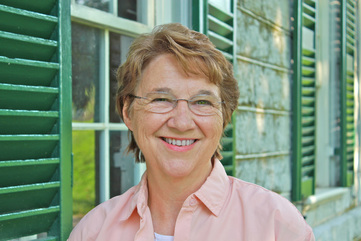 A. H. Gabhart, bestselling author of many novels, including Angel Sister, Small Town Girl, and Love Comes Home; several popular Shaker novels such as The Outsider, The Believer, and The Innocent; and The Heart of Hollyhill series. Ann grew up in a small rural town in Kentucky much like Hidden Springs, but Ann is happy to report nobody was ever murdered on her hometown’s courthouse steps. Ann and her husband still live on a farm near that same little town in Kentucky. Learn more at AnnHGabhart.com. Author Facebook: www.facebook.com/anngabhart Author Twitter: https://twitter.com/AnnHGabhart Author Pinterest: https://www.pinterest.com/annhgabhart/ Author Google+: https://plus.google.com/u/0/+AnnHGabhart/ 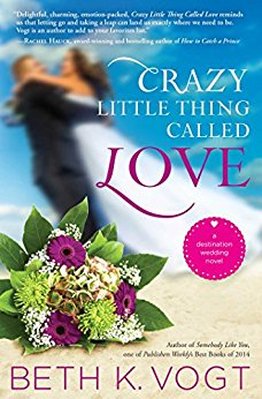 Interview by Brock Eastman Featuring Crazy Little Thing Called Love Wedding bells and storm clouds collide in the first engaging novel in a brand-new series about destination weddings, the power of love, and the possible mishaps and missteps that happen on a couple’s journey down the aisle to “I do.” Paramedic Vanessa Hollister has put her adolescence behind her, including the unwanted label of being the new kid in town over and over again, thanks to her father’s military career. She’s overcome what her mother called “the biggest mistake of her life” and is planning an elegant destination wedding in Destin, Florida with her new fiancé. But will the reappearance of her first husband from her what-were-you-thinking teenage elopement disrupt her dream of an idyllic beach wedding? As a professional storm chaser, Logan Hollister is used to taking risks. However, a reckless decision during the last tornado season has him questioning the future of his team, the Stormmeisters. Coming face to face with his ex-wife eight years after their divorce compels him to confront his greatest regret: losing Vanessa. Does their past give him the right to interfere with her future? A fast-moving, powerful hurricane throws Vanessa and Logan together as they evacuate to a storm shelter along with other residents of the Florida Gulf Coast. Forced to spend time together, the pair battles unexpected renewed feelings for each other. Vanessa and Logan are faced with a choice: Should they accept, once and for all, their teenage marital mistake? Or is God offering them a second chance at happily ever after? Brock: How did you come up with the idea for this series? Beth: I brainstormed the idea for a series with my writing friend and mentor, author Rachel Hauck. I loved how a destination wedding series combined two elements that I believe will appeal to readers: weddings and travel. Brock: Tell us about the main characters. Who are they? What makes them unique? Beth: Logan Hollister is the hero of Crazy Little Thing Called Love and Vanessa Hollister is the heroine. They meet as seniors in high school. Vanessa is part of a military family – she’s learned how to be the new kid in school, thanks to all the moves her family has made through the years. She’s good at saying “hello” and “goodbye.” Logan is more than his “bad boy” persona – he’s actually a protector – and offers Vanessa something she’s always wanted: stability. Brock: Give us one fact about each main character that no one else knows. Beth: Logan had long hair in high school. He grew it long to irritate his dad – teen rebellion – because his dad didn’t support his dream of being a storm chaser. Vanessa never allowed herself to collect anything growing up because her family moved so much. But if she had, she would have kept books – lots and lots of books – instead of borrowing from the library. Brock: In three sentences what is this book about? Beth: What if you discovered that what you thought was your worse mistake was actually the right choice? If you had the chance for a second chance at love, should you take it? Brock: Do you outline the entire book before starting, or do you write as you go and let the characters take control of the story? Beth: I use the Book Buddy, a work-text developed by author Susan May Warren, to outline my books. I develop my characters, my spiritual thread, my subplots and/or layers, the main points of conflict or turning points in the story, even the ending. But even with all the outlining and pre-plotting, I then fast draft, which is when I release control and discover more about my characters and my story. I allow things to change. Brock: How do you believe this story relates to the lives of readers? Beth: Doesn’t everyone have a choice they’ve made sometime in their life – maybe a choice they made in high school – and wonder: If I had a chance to change what I did, would I do something different? Brock: What is your favorite genre to write for? Beth: I love the genre I’m writing: contemporary romance. I believe there’s more to happily ever after than the fairy tales tell us. I examine the reality behind romance – how real life and love are messy – in the novels I write. And I like doing that with modern day stories. Brock: What was the Biblical background for this series? Beth: As I worked on my Destination Wedding series, I realized that God wove the wedding theme all through Bible. He identifies himself as a bridegroom and calls the church his bride. In Revelation, he talks about the marriage feast. And Jesus performed his first miracle at the wedding in Canaa. So, while each individual novel or novella has it’s own spiritual thread, I love how underlying all of the stories is God’s story that embraces weddings. Brock: How many books are planned for this series? Beth: Four in all: Two e-novellas and two novels. Brock: Any certain research required for the book, or is it all from your imagination? Beth: There’s always a certain amount of research. I researched destination wedding locations in the U.S. I researched wedding and reception details: wedding gowns, music, food, engagement rings, bouquets … that sort of thing. One fun thing that I ended up researching was wedding vows. Brock: How do you strike the right balance in your book? Beth: My plotting helps me find the balance – the pre-work I do before I start writing. And then I always look forward to getting feedback from my mentors and my editors – I value their input. Brock: Are you working on the next book in the series? Beth: I’ve written Can’t Buy Me Love (the first e-novella), and Crazy Little Thing Called Love (the first novel). I’m working on the second novel, Almost Like Being in Love. Brock: Can you give us a hint at the next book in the series? Beth: Almost Like Being in Love asks the question: Just because you’re perfect for each other – does that mean you should commit “’til death do us part”? Brock: Do you plot or outline the entire series before you begin writing, or do your books take on lives of their own? Or is there a combination? Beth: I provided my editors with a basic synopsis for all four books. When it comes time to write each one, I expand the synopsis and go from there. Brock: How do you hope parents will use this book with their kids? Beth: I’m happy that my adult readers often hand my books off to their teen daughters. I hope that they will discuss the issues that come up in Crazy Little Thing Called Love with them – things like elopement, teen marriage, having to move a lot, struggling to make friends, divorce. Brock: What do you hope kids take away from this book? Beth: I wish someone had said this to me when I was a teen: The choices you make now will affect you a year from now … 5 years from now … 10 years from now. I thought about that a lot as I wrote Crazy Little Thing Called Love. (And yes, it’s something I made sure my teens heard from me.) Brock: Where do you like to write? Beth: I have a wonderful home office decorated just the way I like it – and that two of my friends helped me organize. I also like to sit in a chair in my family room with my Bose headphones on and write on my laptop – and be right in the midst of all the activity. Brock: Are you a full-time or part-time author/writer? Beth: I am a full-time author – in between all the regular life interruptions that come up. Brock: How long does it usually take you to write a single book? The longest time? Beth: Three years. The shortest time from first draft to deadline? Eight weeks. Brock: What do you hope readers take away from the series? Beth: Second chances aren’t an automatic Yes from God … and they need to be prayed over and treated as treasures. Brock: When did you realize you wanted to become a writer? Beth: I was an avid reader who, when I finished reading all the books I lugged home from the library, would write stories for myself. So, I’ve written stories since I was in middle school. I graduated from college with a journalism major and focused on non-fiction first before becoming a novelist. Brock: What are some of the strongest influences on your writing? Beth: I’ve been blessed to have several writing mentors. Susan May Warren and Rachel Hauck are forces to be reckoned with when it comes to growing as a writer. They’ve challenged me, both as a writer and as a believer, to push past my fears, my doubts, and to do this crazy adventure not for myself but for God. Brock: What’s your view on e-books and the new publishing revolution? Beth: E-books are here to stay. And I’m okay with that. I will always want “real” books in my life – the kind I can curl up with on my couch. It’s not the same thing, curling up with my Kindle. Brock: What are your hopes for your future as an author? Beth: 1) To keep writing and to keep getting better. 2) To mentor other authors so that they can achieve their writing dreams. Brock: In what ways does your faith impact how you approach writing? Beth: For the past ten years, I’ve chosen one word to focus on for the year. This year, my one word is collaborate. I’ve always prayed over the stories I write – prayed for the readers, prayed for the process. But now I want to be so conscious of my writing being a collaboration with God – waiting on Him to help create this story. Brock: Coke or Pepsi? Beth: Coke – and when I am on deadline, I drink way-too much. Brock: Do you have a particular drink or food you consume when you write? Like coco, raspberry tea, animal crackers? Beth: I keep a stash of Jelly Belly jelly beans in my office. I have a special glass jar on my bookshelf and it’s up to me to keep it stocked. I don’t have a favorite flavor, per se, but I avoid the coffee and jalapeno ones. Brock: Do you have a favorite Bible verse? Beth: Romans 5:1-2 (The Message) – especially the part where it talks about finding ourselves where we always longed to be – standing in the wide open spaces of God’s grace. Brock: Do you listen to music while you write? If so, what are some examples? Beth: I do listen to music – and I indulged in some Bose headphones to do so. I like to make up playlists for each of the books I am writing. Sometimes it is the kind of music my hero and heroine like. Sometimes the songs are themed to the book. For example, as I wrote my destination wedding series, I listened to a lot of wedding music. Brock: Why do you write? Beth: I write because life is messy. Relationships are messy. And God stepped into our messy lives, our messy relationships, and showed us that we don’t have to be this way. He offers us more. I like to write novels that weave together real life and a very real God. Brock: What part of writing a book is the most challenging for you? Beth: The End. I usually rewrite my endings several times before they feel right to me. When I begin a book, I often know exactly how I want to start – and it rarely changes. But landing the ending – that’s been more challenging to me. 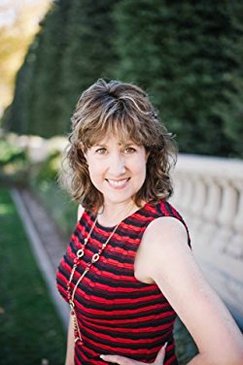 Author Website: BethVogt.com Author Facebook: facebook.com/AuthorBethKVogt Author Twitter: twitter.com/bethvogt Author Pinterest: pinterest.com/beth_vogt Instagram: instagram.com/bethkvogt Goodreads: goodreads.com/author/show/5042181.Beth_K_Vogt?from_search=true 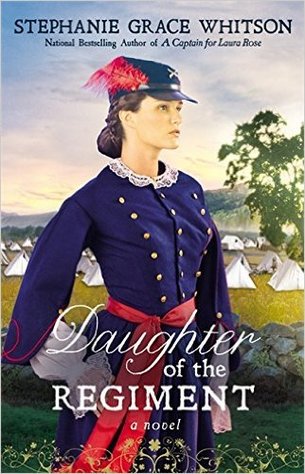 Interview by Ashley Eastman Featuring Daughter of the Regiment Irish immigrant Maggie Malone wants no part of the war. She'd rather let "the Americans" settle their differences—until her brothers join Missouri's Union Irish Brigade, and one of their names appears on a list of injured soldiers. Desperate for news, Maggie heads for Boonville, where the Federal army is camped. There she captures the attention of Sergeant John Coulter. When circumstances force Maggie to remain with the brigade, she discovers how capable she is of helping the men she comes to think of as "her boys." And while she doesn't see herself as someone a man would court, John Coulter is determined to convince her otherwise. As the mistress of her brother's Missouri plantation, Elizabeth Blair has learned to play her part as the perfect hostess—and not to question her brother Walker's business affairs. When Walker helps organize the Wildwood Guard for the Confederacy, and offers his plantation as the Center of Operations, Libbie must gracefully manage a house with officers in residence and soldiers camped on the lawn. As the war draws ever closer to her doorstep, she must find a way to protect the people who depend on her. Despite being neighbors, Maggie and Libbie have led such different lives that they barely know one another—until war bring them together, and each woman discovers that both friendship and love can come from the unlikeliest of places. “Whitson celebrates the strong but unknown heroines who marched off to war with their men, as well as those who maintained the home front in this Civil War-era inspirational—based on true events, Daughter of the Regiment will capture the hearts of historical fiction fans.” --Publishers Weekly Ashley: What was behind your desire to write Daughter of the Regiment? Stephanie: Loving history means I’m always reading history. Being a woman of faith means I’m generally seeking the women’s side of historical events and asking myself how they managed to survive a dramatic event or a particularly difficult time. I learned about the real Daughters of the Regiment while reading about women in the Civil War, and the moment I “met” some of those women, I knew I wanted to celebrate their contribution. Ashley: Who are the main characters in the book? Stephanie: Maggie Malone is an Irish immigrant who really doesn’t want to have anything to do with the north/south conflict. In her opinion, her two brothers should “let the Americans settle it.” But then an Irish Brigade is formed in St. Louis, and Maggie’s brothers volunteer. She’s thrust into the middle of the conflict in a very personal way and forced into situations that challenge her idea about her own identity, both as a woman and as an immigrant. Elizabeth Blair is the mistress of her brother’s plantation in the part of Missouri known as Little Dixie. She’s been thrust upon him because of the death of her parents, and he sees her as little more than a tool to be used to help him get what he wants, which is political power and status. Like Maggie, Libbie hasn’t ever really questioned her personal place in the world. When her brother forms a volunteer militia and the plantation becomes first a campground and then a field hospital, Libbie is also forced into situations that challenge her idea about her own identity and beliefs. Maggie and Libbie come face to face in the aftermath of a battle. Libbie is looking for her brother among the southern dead, and Maggie is tending the wounded. Ashley: Would you share a fact about each main character that no one else knows? Stephanie: No one suspects that six-foot-tall Maggie Malone who farms and hunts and cares nothing for “feminine pursuits” would love to have a home and a family of her own. No one suspects that Elizabeth Blair, the epitome of a southern lady, feels trapped in a way of life that gives her no personal sense of accomplishment and no happiness. Ashley: In three sentences what is Daughter of the Regiment about? Stephanie: Two women from opposite sides of the social ladder must face events that force them to question everything they’ve been raised to believe about themselves, about God, and about their country. Ashley: Do you outline the entire book before starting, or do you write as you go and let the characters take control of the story? Stephanie: I begin with a compelling character caught up in a moment in time—a moment of real history. The characters always take control of the story, and when they do, I know they’ve become real to me. That’s a very good thing. Ashley: If your book changed as you wrote it, how is it different than how you originally planned? Stephanie: My books always change significantly as I write them. Some of that is because they are character driven and I don’t outline before I jump in. Some of it results from the superb input of my wonderful editor, who always has helpful “big picture” insights. Ashley: How do you believe this story relates to the lives of readers? Stephanie: We should all think through what we believe at a fundamental level about God and about our role in the world. Do we believe those things because we were raised to believe them, or do we believe them because we think they are true truth? Ashley: Expound on the spiritual themes in the book. Stephanie: I don’t generally begin a story with a spiritual them in mind, because I don’t want to force a message or preach a sermon. However, usually about two-thirds of the way through a book, I will have a moment where I realize what the book is “really” about, and that is always a spiritual truth. With Daughter of the Regiment, I realized that both Maggie and Libbie had the same needs from a spiritual point of view. Both women needed to realize who they could become if they let go of fear and stepped forward in faith. They needed to learn that physical circumstances or social standing weren’t really all that important in light of eternity. Ashley: Is this your favorite genre to write for? Stephanie: My heart’s in historical fiction. I’ve written contemporary fiction and enjoyed it, but when I returned to historical fiction, I felt like I’d come home. This is where I belong. Ashley: Why do you think historical fiction is so compelling for you as a writer? Stephanie: The “lightweight” answer to that is that women enjoy dress-up. In fact, historical fiction is sometimes called “women in costume.” I think there’s a more profound reason, though. Meeting women from the past by reading their diaries and reminiscences was a very real encouragement to me back in the 1990s when I was facing an unusually trying time in my personal life. In one calendar year, the beloved family dog/guardian ran away, my husband was diagnosed with an incurable form of cancer, my parents both died within six weeks of each other, my best friend died of breast cancer, one of my daughters became very ill with a life-threatening chronic illness that took months to identify and treat, and my eldest daughter and I were involved in a head-on collision when another driver had a heart-attack and crossed the center line of the rode we were on. During that time of my life, I was reading about pioneer women who lost children and faced other devastating life events and still hung on to their faith in God. Their words reached across time and gave me perspective on my own troubles. That very concrete bond has never weakened. I feel a debt to the women who have gone before and I love telling their stories in the guise of historical fiction. Ashley: What sort of research was required for this book? Stephanie: I probably spend as much (if not more) time researching as I do writing a story. I don’t feel that I can move, feed, or clothe my characters until I’ve done some basic research about the time and place. I can’t understand my characters within the context of their time in history until I’ve read a lot about that time in history. I place imaginary friends into real events. Ashley: How do you strike an enjoyable balance in your book between romance & action? Stephanie: By thinking about the part of the story that will force my characters to grow and change in fundamental ways. Readers of historical fiction in 2015 expect a strong romance thread, so I provide that, but my books are all set in a time and place where “action” is a fundamental part of everyday life. As to “fact and fiction,” the facts provide the setting and many of the events, but the specific characters living those events are products of my overactive imagination (except for the occasional cameo). Ashley: Why did you choose to focus on a female protagonist? Stephanie: I generally focus on the female protagonist because women are my largest target audience. Ashley: Can you give us a hint at the next book in the series? Stephanie: I’m having a great time learning about the Pony Express and putting Annie Paxton and her brothers Frank and Emmet into that exciting, pivotal time of western history. Ashley: How much leeway do you give yourself with facts in a Historical Romance? Stephanie: Not very much, and if I do give myself leeway, I explain exactly what it was and why I did it in a letter to the reader. Ashley: Where do you like to write? Stephanie: I’m blessed to have an office in my home. I’ve surrounded myself with historical artifacts, research books (20 running feet of floor to ceiling bookshelves) and clutter. Ashley: Are you a full-time author? Stephanie: Full time. Ashley: How long does it usually take you to write a single book? Stephanie: Oh, my … that’s a tough one. I like to have at least a year, because with historical fiction there’s so much reading and research involved, but some of my story ideas “percolate” in my mind for years before they actually emerge as published books. Ashley: What are some of the strongest influences on your writing? Stephanie: My passionate interest in women’s history coupled with my love of reading. Ashley: What’s your view on e-books and the new publishing world? Stephanie: It’s an exciting time to be a writer. I appreciate the potential e-books have given writers to find an audience. At the same time, I feel for all the wonderful people who’ve been affected in a negative way by the shake-up in “the way things have always been done.” It’s always difficult for a business to adapt to new technology, and I have dear friends who’ve been negatively impacted by the changes in publishing. Because many of those people are my sisters and brothers in Christ, I feel a burden to pray for them—and to pray for the grace to adjust to what God does in my writing life, as well. The only thing that is certain right now is that nothing’s certain—except, of course, for God’s hand on our lives and our writing ministry. So we are all learning, adapting, losing, gaining—I just saw a Charles Schultz cartoon with Charlie Brown and Snoopy sitting side-by-side. Charlie Brown is saying, “My entire life can be described in one sentence: It didn’t go as planned, and that’s ok.” I think all of us involved in publishing right now are working toward the “and that’s ok” part of that view of life. Ashley: What about you tends to surprise people? Stephanie: That one’s easy. No one seems to expect a woman who spends much of her time learning and writing about the 1800s to enjoy riding a motorcycle. I own a Honda Magna and named her “Kitty” when I first rode her home and my daughter commented on the sound and described it as a kind of “purr.” My husband has his own motorcycle as well—but I had Kitty first. We have a group of church friends who take dinner runs and the occasional longer ride together. My favorite of the latter to date was a trip from our home in southeast Nebraska to Door County, Wisconsin. Ashley: What was your favorite book as a teen or child? Stephanie: Anything with a horse in it. The Black Stallion series by Walter Farley were special favorites, and I can still see the cover of the edition of Thunderhead I carried to my favorite reading spot in a mulberry tree in our back yard. Ashley: What is the one author, living or dead, who you would co-write a book with and why? Stephanie: I’ve already co-written a quilt history book with Kathleen Moore of Austin, Texas. It was a wonderful experience and I’d repeat it if she hadn’t had the gall to move out of my home state of Nebraska. Our book (Home on the Plains: Quilts and the Sod House Experience) required lots of quiltmaking together, and that’s not something that can be done long distance. While I have enjoyed collaborating with other novelists in a couple of novella collections, I don’t see myself co-writing in the normal sense of the term. Ashley: What are your hopes for your future as an author? Stephanie: To continue to provide stories that give hope based on the knowledge that through Christ, we can belong to a personal God who cares about what happens to us and who will walk every valley with us. Ashley: In what ways does your faith impact how you approach writing? Stephanie: I am constantly aware of God’s part in my writing life and convicted by David’s promise, “I will not offer to the Lord that which costs me nothing” (2 Sam. 24). I struggle with finding the balance between writing and living life and I am continually asking God for help with that. Ashley: Coke or Pepsi? Stephanie: Root Beer Ashley: Favorite place to vacation? Stephanie: Paris Ashley: Favorite season? Stephanie: Fall (God’s paintbrush applied to the changing landscape delights me) Ashley: Do you have a particular drink or food you consume when you write? Like coco, raspberry tea, animal crackers? Stephanie: Excellent quality, medium roast coffee. Ashley: Favorite color? That’s changing. It used to be red. Now I think it might be yellow. Ashley: Do you have a favorite Bible verse? Stephanie: My favorites change often, depending on what books of the Bible we are studying in church and what I’m reading on my own. I reference 2 Thessalonians 3:16 when I autograph books: “ … may the Lord of peace Himself continually grant you peace in every circumstance …” Ashley: Favorite pasta dish? Stephanie: Anything served at Angiolino Ristorante in Florence, Italy. Ashley: Do you listen to music while you write? If so, what are some examples? Stephanie: I don’t. I like the silence. My office is in the basement of my Victorian era home. It’s deeper than many basements, with high ceilings and a lovely brick archway through which you pass to access the office. We call it “the catacombs,” and I adore spending time “down there” with my imaginary friends. In silence. Ashley: Thank you Stephanie for giving us such deep insight into Daughter of the Regiment and your writing process. It’s always fun to go deeper into the author’s experience of writing. 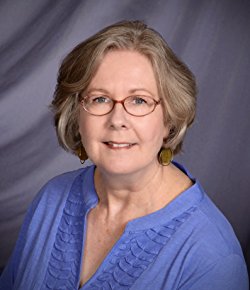 Author Website: StephanieWhitson.com Author Blog: stephaniegracewhitson.blogspot.com Author Facebook: Facebook.com/StephanieGraceWhitson-official Author Pinterest: pinterest.com/stephgwhitson/ 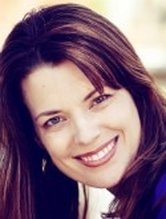 Looking for fun resources to encourage your kids in learning and using their God-given, creative abilities? Imagination Soup gives you just that. Melissa Taylor, a mom of two and former teacher, blogs weekly on ImaginationSoup.net, giving everything your child needs from engaging book recommendations to intriguing writing prompts and contests to multiplication songs and even coding. Melissa has recently read The Quest for Truth series and LOVED it. You can read her review here. 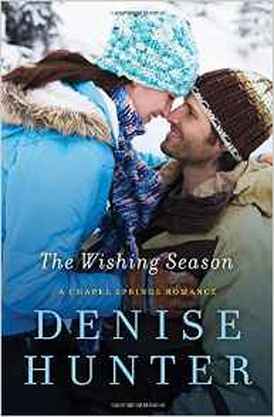 Interview by Ashley Eastman Featuring The Wishing Season Ashley: How did you come up with the idea for The Chapel Springs Series? Denise: The TV show Parenthood convinced me it was time for a family series. In an age where there are so many ways to communicate, we're so disconnected! I wanted to write about a close-knit family in a small town setting. Family ties come with the good and the bad, and the McKinleys share in all of it: Friday night BBQs, rumors, backyard ballgames, heart-to-hearts, secrets, laughter and tears. Each book is a stand-alone that feature the love story of 1 of the 4 grown McKinley kids. Incidentally, this is my first series set in my home state of Indiana. Ashley: Give us one fact about each character that no one else knows. Denise: Oh, how fun. I love secrets. :) The heroine PJ was a fun challenge in that she's my polar opposite. She's chatty and outgoing and over-the-top optimistic. She's newly graduated with a culinary degree (I hate to cook!), and she dreams of opening her own restaurant. She's dealing with the secret shame of having dated a man she later discovered was married. The hero Cole is steady and quiet (and a little annoyed by PJ's tendency to run off at the mouth). He grew up as a foster kid and dreams of opening a transition house for kids aging out of the system. Cole blames himself for the death of his family. Ashley: In three sentences, what is this book about? Denise: When an eccentric resident offers her ancestral home to the applicant with the best plan for it, PJ McKinley thinks her dream of owning a B&B/restaurant is about to be realized. But contractor Cole Evans has plans of his own. When the elderly woman can't decide which plan is better, she proposes a tie-breaker--the competitors will share the house for a year to show what their ideas are made of. Ashley: Can you give us a hint at the next book? Denise: Married 'til Monday is the last book in the Chapel Springs series and my first reconciliation story--it really packs an emotional punch. It features the oldest McKinley sibling Ryan who's attempting to win back his ex-wife and soul mate, Abby. Ashley: What is your favorite genre to write for? Denise: Contemporary romance is my sweet spot. I love love and all things associated with it, and nothing makes me happier than bringing my readers along on the emotional journey of falling in love. My goal is that happily-ever-after sigh at the end of each story. Ashley: Where do you get your ideas from? Denise: Oh, they come from all over the place. Music lyrics, Sunday sermons, newspaper articles, Dr. Phil. LOL Not kidding. I have a thick file full of story ideas. I'll never have time to write them all. Ashley: How long does it usually take you to write a single book in the series? Denise: I'm on a 6-month release schedule now, so no book takes me longer than that. Some books are easier than others. I think my record is 4 months, but it usually doesn't go that smoothly! Ashley: Coke or Pepsi? Denise: Diet Pepsi Ashley: Soft shell or Hard Shell tacos? Denise: Soft Ashley: Favorite place to vacation? Denise: Anywhere, so long as I haven't been there before! Ashley: Favorite season? Denise: Fall (which lasts about 2 days in northern Indiana.) Ashley: Do you have a particular drink or food you consume when you write? Like coco, raspberry tea, animal crackers? Denise: Coffee. (Toomer's Costa Rican blended with MCT oil and a bit of Stevia.) Ashley: Favorite color? Denise: Red Ashley: Do you have a favorite Bible verse? Denise: Philippians 4:13 Ashley: Favorite pasta dish? Denise: Mostaccioli Al Forno Ashley: Do you listen to music while you write? Denise: I find music very inspiring, but while I'm writing, I need quiet! 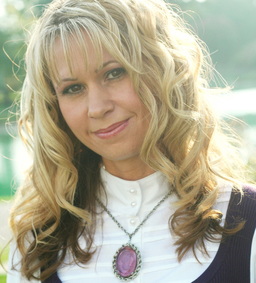 Author Website: www.DeniseHunterBooks.com Author Facebook: www.facebook.com/denisehunterauthor Author Twitter: DeniseAHunter 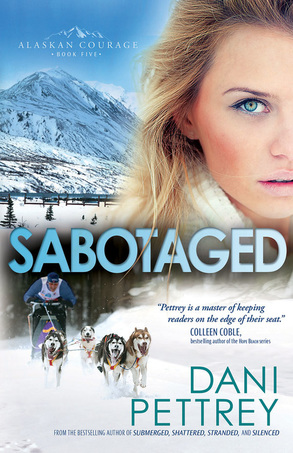 Interview by Brock Eastman Featuring Sabotaged Finally Returned Home, Reef McKenna Finds His Beloved Alaska Facing Its Greatest Threat Growing up, goody-two-shoes Kirra Jacobs and troublemaker Reef McKenna were always at odds. Now, working together as search-and-rescue for Alaska's arduous Iditarod race, a growing attraction seems to be forcing aside old arguments. Then Reef catches Kirra sneaking from camp in the middle of the night. Kirra's uncle, a musher in the race, has disappeared. Kirra and Reef quickly track the man, but what they discover is harrowing: Frank's daughter has been kidnapped. Kirra and Reef, along with the entire McKenna family, are thrown into a race to stop a shadowy villain who is not only threatening a girl's life--but appears willing to unleash one of the largest disasters Alaska has ever seen. “Pettrey keeps the pages turning with a wicked pace, snappy dialogue, and likable characters, while deftly handling deep emotional and spiritual struggles. Series fans will relish—and mourn—the conclusion of the McKenna siblings’ adventures.” —Publishers Weekly Brock: How did you come up with the idea for the Alaskan Courage series? Dani: I watched a movie about cave divers and it got me thinking what type of person would pursue such a dangerous job for a living. I find extreme athletes and people who pursue adventurous careers simply fascinating. I began diving into all the extreme sports and adventure professions and the McKenna family was born. Brock: What was your inspiration for setting your Sabotaged during Iditarod? Dani: It’s an idea I’d been toying with since the start of my Alaskan Courage series. The McKennas’ world revolves around adventure and extremes. There’s no place on earth where you find a better combination of the two than during the Iditarod. Brock: Tell us about the main characters. Who are they? What makes them unique? Dani: Reef McKenna is the black sheep of the McKenna clan. He spent many years estranged from his family. Now he’s back and trying to set things right. Kirra Jacobs is driven, focused and kind, but she’s also been deeply wounded. Seeing these two vastly different characters interact has been a lot of fun. Brock: Give us one fact about each main character that no one else knows. Dani: Reef is allergic to avocados and Kirra loves the Hallmark channel, despite her aversion to all things romantic. Brock: In three sentences, what is this book about? Dani: Partnered on a search-and-rescue team, Reef and Kirra are thrown into a race to stop a shadowy villain who is not only threatening a girl's life--but appears willing to unleash one of the largest disasters Alaska has ever seen. Brock: Do you outline the entire book before starting, or do you write as you go and let the characters take control of the story? Dani: I don’t plot. The thought of outlining gives me hives. I start with a story premise, a ‘what if’ question and just write. The typically means a lot of drafts to get it right, but it’s the process that fits me. Brock: How do you believe this story relates to the lives of readers? Dani: I believe we all face difficulties in life. We all have struggles. They may not be facing a villain intent on sabotaging the Iditarod, but they are just as real and trying. Seeing God at work in the midst of these struggles, watching a character navigate through hardship and overcome is extremely inspiring. I believe we all need inspiration and, more importantly, hope. Brock: What is your favorite genre to write for? Dani: I love writing inspirational romantic suspense because it incorporates so many things I love--the thrill of adventure, nail-biting suspense, the deepening of one's faith and plenty of romance. Brock: Any certain research required for the book, or is it all from your imagination? Dani: I do a lot of research with my books on the setting (Alaska), my characters’ professions (Search and Rescue) and the events surrounding the mystery (Iditarod being threatened). I try to have my facts as accurate as possible and then take fictional liberty to make the story unique. Brock: How do you strike the right balance in your book? Dani: Romantic suspense is a difficult genre. It’s important to have an equal balance between the two. Since I don’t outline or plot, it takes a lot of practice and numerous drafts to strike the right balance. Brock: Why did you choose to have two protagonists? Dani: In a romance it’s really important for readers to be able to see the story through both the hero and heroine’s eyes. To understand what each is thinking and feeling. Brock: Sabotaged is book five in the Alaskan Courage series. Do you need to read the books in order? Dani: Each book in the series features a different McKenna sibling and can be read as stand alones. Brock: Sabotaged is the conclusion of the Alaskan Courage series. What’s next? Dani: I’m working in a new four-book romantic suspense series entitled Chesapeake Valor. The first book will release early next year. Brock: How hard was it to say goodbye to a family who’ve spent five books with? Dani: While I’m thoroughly enjoying getting to know my new cast of characters, it’s definitely been an adjustment not spending time with the McKennas. Brock: Any chance you’ll revisit the McKenna clan? Dani: It’s definitely a possibility. Brock: Where do you like to write? Dani: I have an office in the sunroom off our kitchen. I love writing there because it’s so bright and sunny. I’ve got a desk and a loveseat for when I need a break from the computer. My black lab is always curled up on the loveseat while I’m writing. Brock: Are you a full-time or part-time author/writer? Dani: I’m a full-time writer now that my kids are grown, but I do watch my grandson two days a week, which is an absolute treasure. Brock: How long does it usually take you to write a single book? Dani: I started out writing a book a year, but my deadlines have definitely moved closer together. I now write a book about every eight months. Brock: Expound on the spiritual theme in Sabotaged. Dani: The theme for Sabotaged is hope in the midst of brokenness. God is able to bring healing and hope despite the worst of circumstances. It doesn’t happen overnight most times, but if we trust Him and wait on Him, He is faithful to bring healing—to turn our mourning into dancing. It doesn’t mean that all our questions will be answered, but we can hold tight to the promise that He will provide the grace we need to get through, even if it’s simply the grace to make it through day by day. God is faithful. Brock: What is your "how I got published" story? Dani: I have always loved daydreaming and making up stories. I dabbled with creative writing growing up, but set it aside. It wasn’t until after the birth of my youngest daughter and a bout with a serious illness, that I really felt God stirring me to start writing again. My kids were young, so I started slowly. I spent a lot of time simply reading novels, seeing how they worked, analyzing why I fell in love with certain characters and not others. I attended writing conferences, joined a writer’s group and devoted regular time to writing. I was also blessed with an amazing mentor who really shepherded me in the craft and writing life. I wrote for a number of years, entered contests and applied the feedback I received. A number of years ago, I attended the ACFW conference. I approached my editor after his Spotlight Session and he was gracious enough to ask to see the first three chapters. A few weeks later, I got a request for the full. A few weeks after that he told me they were going to present it for contract. The day I got ‘the call' was amazing. I had received my share of rejections, so getting the ‘go ahead’ on a story I loved so dearly was pure joy. Brock: What are some of the strongest influences on your writing? Dani: Reading books by favorite authors like Dee Henderson, Sue Grafton, Jane Austen and Agatha Christie really stir my creativity. Watching powerful movies also provides a lot of inspiration, but the greatest influence on my writing is my relationship with God. It’s all for Him. I pray I honor and glorify Him with every word that I write. Brock: What is the one author, living or dead, who you would co-write a book with and why? Dani: Dee Henderson. She’s my favorite author, a wonderful inspiration, and someone I would be incredibly honored to partner with. Brock: In what ways does your faith impact how you approach writing? Dani: My faith greatly impacts my writing, but I hope in a natural way. Just as my love of adventure permeates the stories I write, so does my faith. My relationship with Jesus is part of every facet of my life; it’s only natural to be part of the stories I tell. Brock: Coke or Pepsi? Dani: Coke. Brock: Soft shell or Hard Shell tacos? Dani: Hard shell. Brock: Favorite place to vacation? Dani: The beach. Brock: Favorite season? Dani: Summer. Brock: Do you have a particular drink or food you consume when you write? Like coco, raspberry tea, animal crackers? Dani: Coffee and chocolate. I’m really healthy, can’t you tell ☺ Brock: Do you have a favorite Bible verse? Dani: “He has made everything beautiful in its time. He has also set eternity in the human heart; yet no one can fathom what God has done from beginning to end.” Ecclesiastes 3:11 NIV I love it because it explains why death is so hard for us to deal with. It is because God has set eternity into our hearts. We know He has created us for more than this life, this world. Brock: Do you listen to music while you write? If so what are some examples? Dani: I can’t listen to music while writing my first draft. I find it too distracting. However, I develop story soundtracks for all my books while working on the first draft. I listen to the soundtrack during revisions. You can listen to the soundtracks on my website. Brock: Did you learn surprising facts or trivia while researching the Iditarod? Dani: So many things. For example, race times have gotten twice as fast since it started. The first Iditarod took place in 1973 and took about 20 days to complete; currently, it takes about 10 days. Additionally, sled dogs need to consume 10-12,000 calories a day during the race. It goes without saying, but I am truly in awe at the brave athletes who compete in such a grueling and arduous race—both the men and woman mushers, and of course, the sled dogs. I loved seeing the musher’s devotion and care of their animals, as well as the bonding that exists between the two. It’s really touching. Brock: If you could have dinner with any fictional character who would you chose and what would be the first question you asked them? Dani: Jamie Sullivan from A Walk To Remember by Nicholas Sparks. I would ask her how she could always be so brave. I know the answer. I know it was Christ filling her with strength, but I admire her steadfast faith so much. Brock: How do you celebrate when you finish a book? Dani: My family and I always go out to dinner to celebrate. My favorite treat is Roy’s Melting Hot Chocolate Soufflé. It’s a Belgian chocolate soufflé drizzled with raspberry coulis and accompanied by vanilla bean ice cream. It is out of this world. Then, I play catch-up on everything I’ve let slide during deadline craze—sleep, email, cleaning. Though I don’t suppose the latter part counts as celebrating ☺ 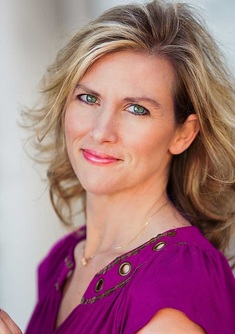 Author Website: DaniPettrey.com Author Facebook: facebook.com/DaniPettrey Author Twitter: @DaniPettrey Author Pinterest: pinterest.com/DaniPettrey |
Follow meArchives
May 2024
Categories
All
|
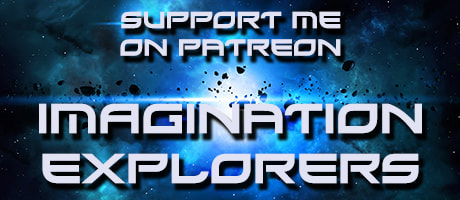
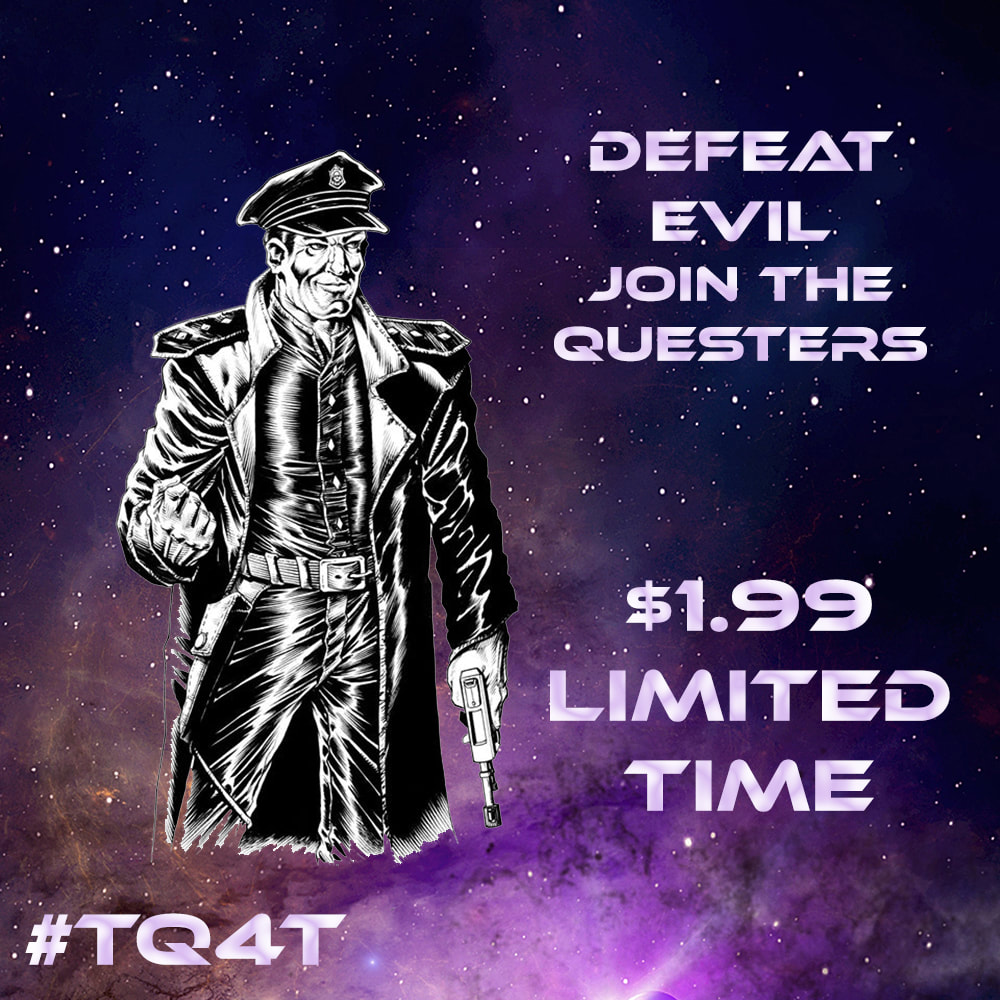
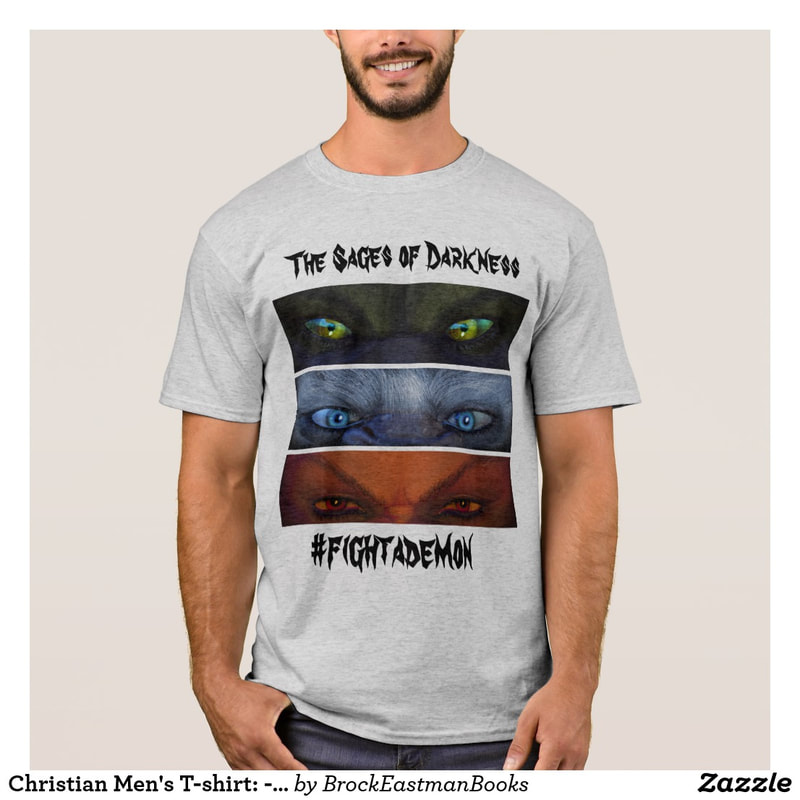

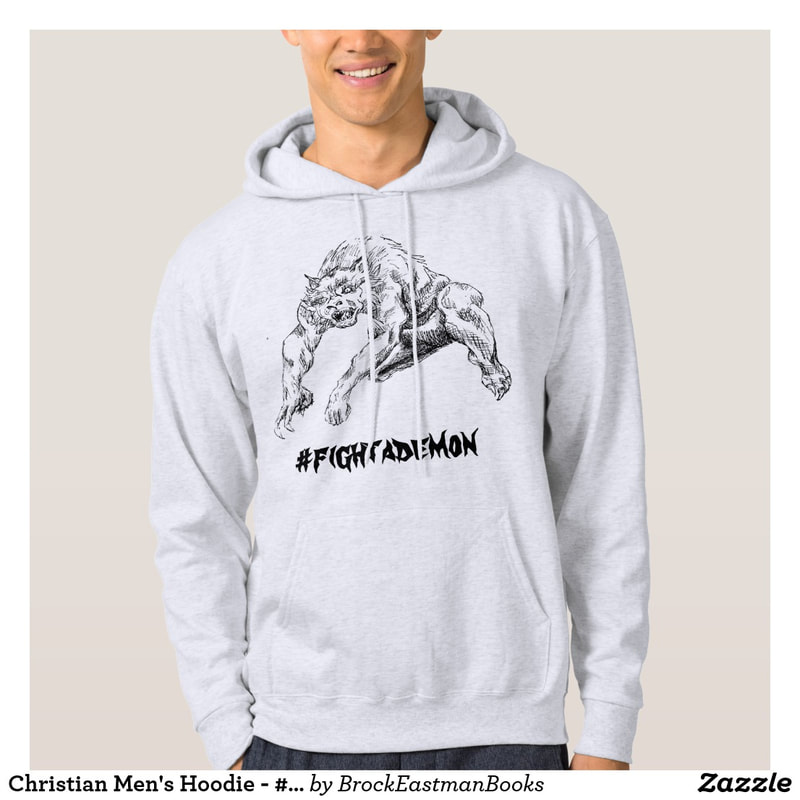

 RSS Feed
RSS Feed